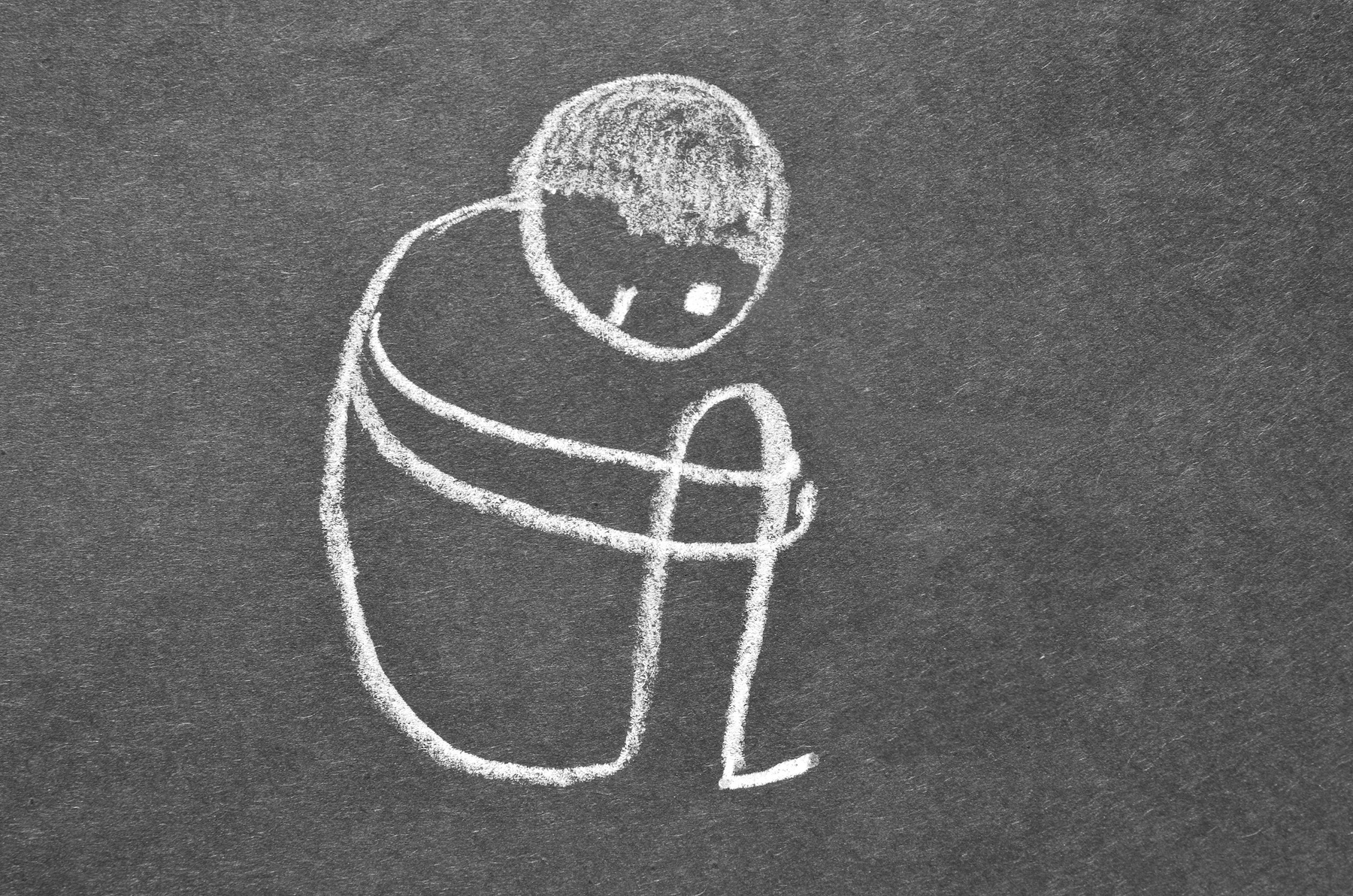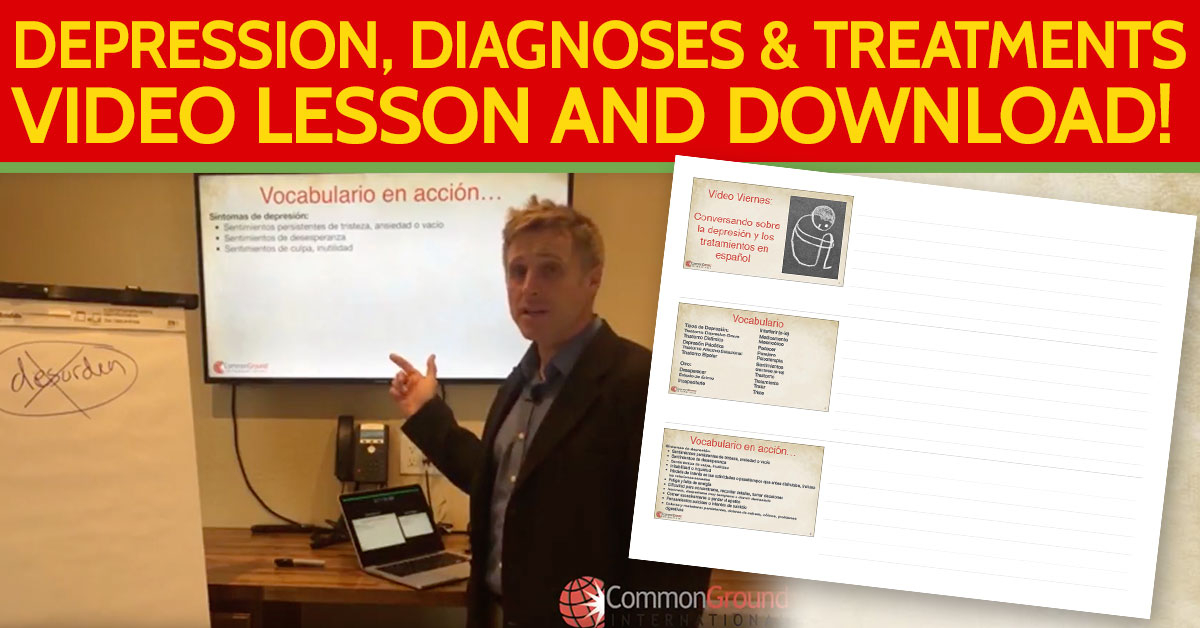Coping strategies in Spanish are “Estrategias de afrontamiento”.
This week, as I was preparing to have a coping strategies talk with one of my daughters who was having a rough time at school, I searched for any previous video viernes lessons I had done on the topic; but I came up empty! So, today’s lesson is a variation of a conversation I had at the dinner table the other night :). Hope you enjoy it!
In this lesson, you’ll learn:
- Common Spanish vocabulary around coping strategies
- How to describe the concept of coping strategies in Spanish
- Spanish examples of coping strategies that fit common categories like: Active coping strategies, Creative coping strategies, Social coping strategies, Relaxing coping strategies, Cognitive coping strategies, and unhealthy coping strategies.
Here is the coping strategies in Spanish video lesson I taught this week:
Coping Strategies vocabulary:
- Abrumado / agobiado = overwhelmed
- Afrontar = face, confront
- Altibajos de la vida = highs and lows of life
- Estar estresado = be stressed
- Estar molesto = be annoyed, bothered
- Estrategias de afrontamiento = coping strategies
- Estrés = stress
- Herramientas = tools
- Manejar = manage
- Manejar las emociones = manage emotions
- Manejo del estrés = stress management
- Mantenerse conectado = stay connected
- Niveles de estrés = stress levels
- Reducir = reduce
- Retos = challenges
- Rutinas = routines
- Saludable = healthy
- Tácticas = tactics
- Técnicas = techniques
- Una crisis = a crisis
Some questions to begin with:
¿Qué le gusta hacer para distraerse? = What do you like to do to distract yourself?
¿Cómo le gusta aliviar el estrés? = How do you like to alleviate stress?
- ¿Hacer algo creativo? = do something creative?
- ¿Actividad física? = physical activity?
- ¿Relajarse? = relax?
- ¿Pasar tiempo con familia / amigos? = spend time with family / friends?
¿Cómo se siente cuando… estrategia? = How do you feel when you strategy?
¿Alguna vez ha intentado… estrategia cuando se siente agobiado / abrumado? = Have you ever tried strategy when you’re feeling overwhelmed?
A brief description of coping strategies in Spanish
- Las estrategias de afrontamiento nos ayudan a manejar los sentimientos y los estreses de la vida.
- El afrontamiento es algo que tenemos que aprender con la práctica.
- Es importante conocer estrategias saludables para afrontar los retos en la vida.
Active coping strategies:
- Apretar una pelota antiestrés
- Dar un paseo en bicicleta
- Hacer una caminata
- Hacer yoga o estiramientos
- Jugar bola, patear una pelota
- Poner música y bailar
- Rebotar una pelota
- Salir a caminar o correr
- Salir a jugar
- Saltar la cuerda
Relaxing coping strategies:
- Abrazar a un animal de peluche
- Beber un trago de agua fría
- Cerrar los ojos y contar
hasta 10 o atrás desde
cien (100) - Escuchar música
relajante - Leer un libro
- Pasar tiempo al aire libre
- Pensar en un lugar tranquilo y feliz
- Respirar profundamente
- Soplar burbujas
- Tensar y relajar los músculos
- Tomar un baño o una ducha
- Tomar un descanso
Creative coping strategies:
- Colorear, dibujar o pintar
- Escribir una historia
- Escribir un poema
- Inventar una canción
- Jugar con plastilina
- Llevar un diario para expresar los pensamientos y las emociones
- Tocar un instrumento
Social coping strategies:
- Abrazar o jugar con la mascota
- Compartir los sentimientos con alguien en quien confía
- Facetime / whatsapp con los familiares o amigos
- Jugar un juego con la familia o amigos
- Llamar a un amigo
Cognitive coping strategies:
- Cerrar los ojos y pensar en algo que está esperando
- Concentrarse en lo que pueda controlar
- Concentrarse en una cosa por la que está agradecido
- Mirar fotos y pensar en recuerdos felices
- Pensar en algo positivo
- Pensar en algo que le haga reírse
- Practicar reencuadres. En lugar de “El estrés de mi trabajo es insoportable”, intente pensar “Tengo suerte de tener un trabajo estable”
Unhealthy coping strategies:
- Evitar o negar los problemas; no afrontarlos
- Dormir demasiado – otra manera de evitar la situación actual
- El uso excesivo de alcohol o drogas – es un escape mental por un tiempo pero tiene sus consecuencias negativas
- Hacer compras impulsivas
- Comer mucho o no comer lo suficiente
Learn the lesson vocabulary with this Quizlet set:
Now it’s time to practice with your conversation partner!
- Identify a common patient profile that you end up talking to about coping strategies for frequent life stressors.
- Role play asking your patient (compañero) how they tend to deal with difficulties & make some additional suggestions.
If you don’t have a practice partner, join the Learning Medical Spanish Facebook Group and put yourself out there!
Other posts in this mental health series:
How to Evaluate Depression in Spanish using SIG E CAPS
This Medical Spanish lesson teaches you how to evaluate depression in Spanish using SIG E…
Questions and Phrases to Assess Child Abuse and Neglect in Spanish
This Medical Spanish lesson focuses on learning how assess child abuse and neglect in Spanish….
Mental health Conversation in Spanish – Listening Comprehension
Work on your listening comprehension in Spanish and learn about the mental health situation in…
PHQ 9 and GAD 7 for depression and anxiety screenings in Spanish
Screening for depression and anxiety with the PHQ-9 and GAD-7 in Spanish. Do you ever…
Discussing ADD and ADHD in Spanish
ADD in Spanish is “TDA: el trastorno de déficit de atención” and ADHD is “TDAH:…
Discussing PTSD in Spanish
PTSD in Spanish PTSD is lesson 4 in our 5-lesson series on discussing mental health…
Discussing Substance Abuse in Spanish
In today’s lesson, we’re addressing topic #3 from the mental health survey that our community…
Discussing Anxiety in Spanish
This is Lesson 2 of 5 in our Mental Health in Spanish series. In this…
Discussing Depression in Spanish
This is Lesson 1 of 5 in our Mental Health in Spanish series. In this…
Mental Health Conversations in Spanish
In this free Medical Spanish lesson you will learn how to have Mental Health Conversations…
Explaining Depression Diagnoses & Treatments in Spanish
This Medical Spanish lesson focuses on explaining the depression diagnoses and treatments in Spanish to…















Excellent, as usual. Thank you.